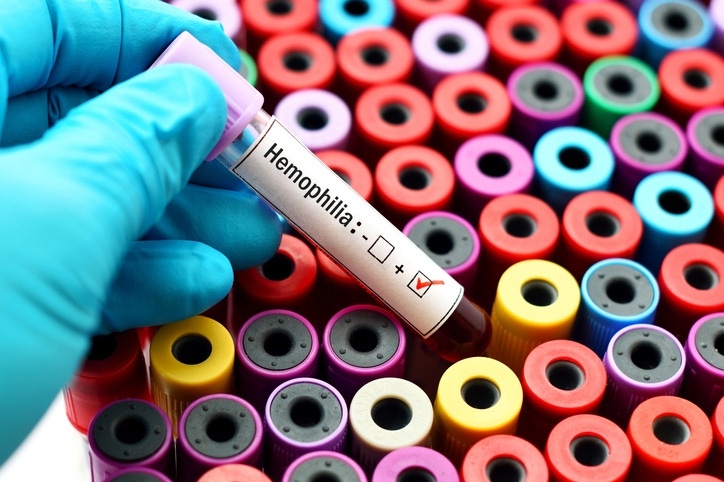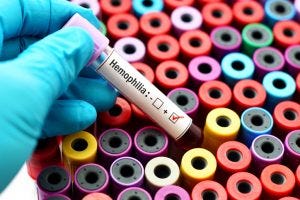Content Spotlight
Podcast: MilliporeSigma says education vital to creating unbreakable chain for sustainability
MilliporeSigma discusses the importance of people, education, and the benefits of embracing discomfort to bolster sustainability efforts.
May 8, 2020

The company lowered revenue guidance due to COVID-19, but announced a new brand name, Roctavian, for its hemophilia A gene therapy, which it said remains on track for FDA approval later this year.
BioMarin Pharmaceutical is still on track to launch the first gene therapy for hemophilia A in the US later this year, but acknowledged during its first quarter sales and earnings call on 29 April that the commercial dynamics are uncertain because of the COVID-19 outbreak.
Management unveiled a new brand name for valoctocogene roxaparvovec, which will be marketed as Roctavian. BioMarin is anticipating FDA action on the biologics licensing application for the gene therapy by 21 August.

Image: iStock/jarun011
However, the company said the commercial environment for medicines that are administered via infusion in hospitals and other settings has been challenging as hospitals have prioritized COVID-19 patients and some treatments have been postponed. It’s uncertain what the situation will be like when Roctavian comes to the market.
BioMarin’s commercial portfolio includes several infused enzyme replacement therapies, including Vimizim, Naglazyme and Brineura, so the company is already feeling a hit from the pandemic. Despite a strong first quarter, BioMarin lowered total revenue guidance for the year by around 5% or $100 million to $1.85 billion-$1.95 billion as a result of COVID-19. The company maintained earnings guidance and said it still expects to reach profitability for the first time in 2020.
“While we experienced minimal impact in the first quarter due to COVID-19, we anticipate the potential for a higher degree of impact during the remainder of 2020 as disruptions of day-to-day operations of clinics and hospitals flow through our business,” chief commercial officer Jeffrey Ajer told the call.
“Where possible, we are supporting home infusion efforts to help mitigate impact,” he said. “However, some COVID-19 disruption to new patient starts as well as to ongoing infusion center visits from existing patients are expected to continue.”
As it relates to the launch of Roctavian, Ajer said the biggest variable will be the ability and willingness of certain hospitals to do infusions at the time of the launch. “If we are so fortunate to have an approved Roctavian product in Q4, [the launch] will probably be somewhat dependent on the course of the COVID-19 pandemic,” he said.
Despite the headwinds, BioMarin announced strong first quarter revenue growth, up 25% to $502.1 million, with solid sales growth across the portfolio. The company reported GAAP net income of $81.4 million versus a net loss of $56.5m in the year ago period.
In addition to the upcoming launch of Roctavian, BioMarin said it also plans to file another treatment with the FDA and European regulatory authorities in the third quarter: vosoritide to treat children with achondroplasia, the most common form of dwarfism.
The filing will be based on a long-term Phase II trial in five to 18-year-olds, an ongoing study in newborns through five years and a placebo-controlled Phase III trial that enrolled 121 five to 18-year-olds. The pivotal data readout prior to the pandemic, so the final work can be concluded remotely, the firm said. Vosoritide binds to a receptor that inhibits the overactive FGFR3 pathway, a regulator of bone growth.
One big question around the upcoming launch of Roctavian has been how much BioMarin will charge for the first gene therapy for hemophilia, with expectations for pricing expected to exceed $2 million. There was no update during the first quarter call on that front, but Ajer said the company is talking to payers about outcomes-based reimbursement agreements.
“We think we’ve potentially got some things that will work for payers,” he said. “We are out there talking to payers right now.”
Jessica Merrill is a Bureau Editor for US Commercial Content for Informa’s pharmaceutical news publications, including “The Pink Sheet” and SCRIP. She has been covering the pharmaceutical industry as a journalist for more than 10 years, and can be reached at [email protected] or @Jessicaemerrill
You May Also Like